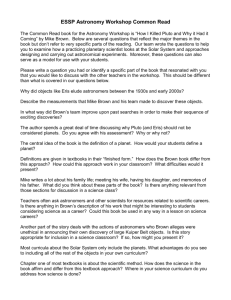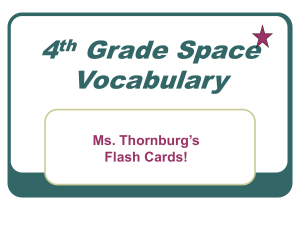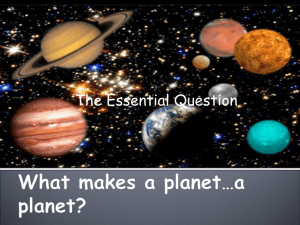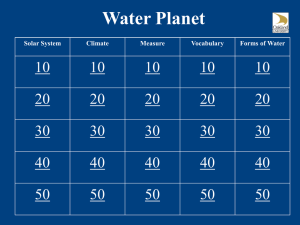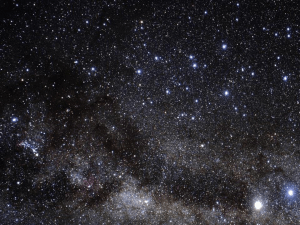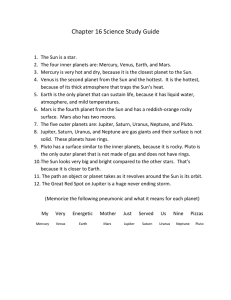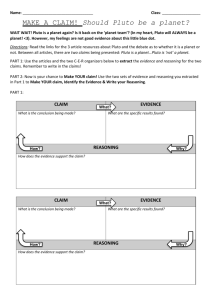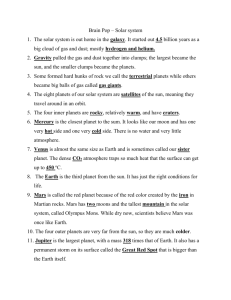Des Moines Register 10-13-06 ISU professor in middle of the Pluto controversy
advertisement
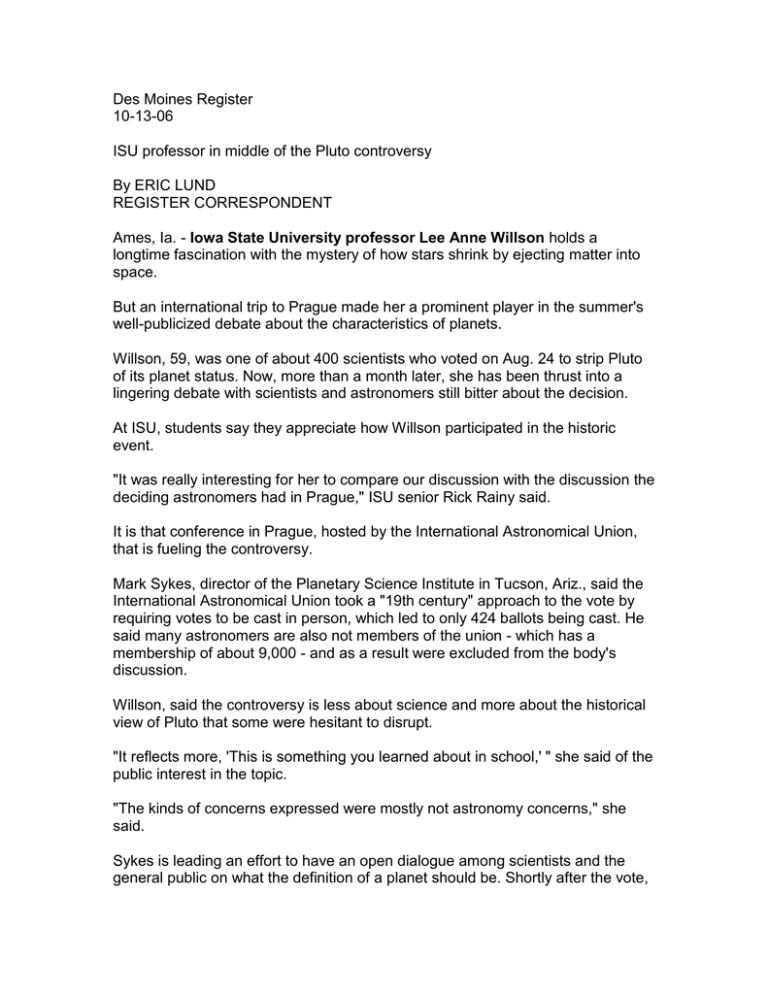
Des Moines Register 10-13-06 ISU professor in middle of the Pluto controversy By ERIC LUND REGISTER CORRESPONDENT Ames, Ia. - Iowa State University professor Lee Anne Willson holds a longtime fascination with the mystery of how stars shrink by ejecting matter into space. But an international trip to Prague made her a prominent player in the summer's well-publicized debate about the characteristics of planets. Willson, 59, was one of about 400 scientists who voted on Aug. 24 to strip Pluto of its planet status. Now, more than a month later, she has been thrust into a lingering debate with scientists and astronomers still bitter about the decision. At ISU, students say they appreciate how Willson participated in the historic event. "It was really interesting for her to compare our discussion with the discussion the deciding astronomers had in Prague," ISU senior Rick Rainy said. It is that conference in Prague, hosted by the International Astronomical Union, that is fueling the controversy. Mark Sykes, director of the Planetary Science Institute in Tucson, Ariz., said the International Astronomical Union took a "19th century" approach to the vote by requiring votes to be cast in person, which led to only 424 ballots being cast. He said many astronomers are also not members of the union - which has a membership of about 9,000 - and as a result were excluded from the body's discussion. Willson, said the controversy is less about science and more about the historical view of Pluto that some were hesitant to disrupt. "It reflects more, 'This is something you learned about in school,' " she said of the public interest in the topic. "The kinds of concerns expressed were mostly not astronomy concerns," she said. Sykes is leading an effort to have an open dialogue among scientists and the general public on what the definition of a planet should be. Shortly after the vote, he created a petition opposed to the new definition that was signed by over 300 astronomers. Now he said he is working on furthering debate by encouraging online discussions on what the characteristics of a planet should be with the goal of creating a definition more effective than the union's. Pluto's planet status has eroded since its discovery in 1930, and it has been found to be far less massive than originally thought, as well as not fitting with the model that explains the formation of the eight other planets. However, the new definition of a planet - which requires the object to be gravitationally rounded, to orbit the sun and have cleared its orbit of debris leaves some gray area on planetary definitions, Willson said. Specifically, some scientists have questioned the feasibility of the requirement that a planet must be the dominant object in its orbit. Bernard McNamara, an astronomy professor at New Mexico State University, said many planets, including Neptune - which has an orbit that crosses Pluto's also might not have cleared their orbits. That would mean that under the new definition they are not planets, he said. In addition, planets discovered around other stars cannot be seen well enough to know for sure if they have cleared their orbits of other objects. "I think the matter is still open for discussion," said McNamara, who works at the same school where the discoverer of Pluto, Clyde Tombaugh, taught. "It does seem premature to suggest that now all authors have to rewrite their textbooks." More about Lee Anne Willson: RESEARCH INTEREST: She has focused on studying how stars lose mass over time by ejecting matter into space, which intersects with some of the discussions about the meaning of a planet. When stars grow old, they both expand and eject much of their material into space, which can affect the orbits of their planets — or destroy them. THE SUN: Like other stars, when the sun gets very old, it will enter the red giant phase and begin to pulsate in brightness and size regularly over an average period of a year, Willson said. During this time, which will not occur for billions of years, the sun will also eject matter and could eventually expand to engulf Earth, Willson said. PLUTO'S EFFECT ON HER RESEARCH: While Pluto has little to do with Willson's research, she said it may be touched on in a book she is writing on the physics of stellar and planetary atmospheres. That's because Pluto sometimes has a detectable atmosphere, and at other times does not. "There's some curious processes that take place when you've got an atmosphere on something so cold," she said. Because of its highly elliptical orbit - another reason it differs from the eight major planets - Pluto's faint atmosphere is sometimes frozen, but can thaw when it nears the sun, she said. TEACHING: Willson teaches several classes, including astrophysics. QUOTE: "She is very, very passionate about what she does," said ISU student Rick Rainy. "She has a really keen interest in the subject. She seems a little erratic at times in terms of course topics, but that's just because she has so much in her head — she wants to get it all out."

